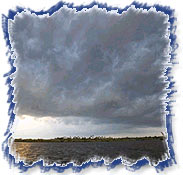Climate in India

India is characterised by a hot tropical
climate which varies from region to region. The winters fall between
November to mid-March and summers from April to June. Northern India remains
dry, dusty, and unpleasant during the summer months. The nature of monsoon,
which lies between mid-July and September is erratic where some areas
experience heavy rains the others experience drought and still others get
flooded. Tourists can explore the country in all the seasons but by being
selective for certain places during certain part of the year.
Weather and Climatic Conditions in various parts of India
 Northern
Plains
Northern
Plains
Northern Plains of India which lie to the north of River Ganges have
extreme climate. The area is characterised by hot, humid, and very harsh
summers. Light cottons are recommended for this season. The rainy season
lies between the month of July and the month of September where monsoon
brings with it most of the rain received in this region. Winters present the
most desirable season to tour the North India. Nights can be freezing cold
so heavy woolens should be brought here.
Western Himalayas
The best time to explore the Western Himalayas (which covers the extreme
northern part of India stretching form Jammu & Kashmir to Himachal
Pradesh) are the summers, as the climate remains desirable with slightly
cold evenings and plenty of sunny days. The Western Himalayas offer great
opportunities for adventure sports like trekking, hiking, white water
rafting, and mountaineering during the summers. During winters, there is
heavy snowfall, due to which the area becomes inaccessible but, places like
Auli, Manali, and Kufri are famous for skiing.
Central India
The two Central Indian states, namely, Madhya Pradesh and Chhattisgarh,
experience summer with moderate temperatures where the winters are moderate
as well. The monsoons fall between July and September which brings heavy
downpour which is essential.
Western India

The region is characterised by summers that are extremely hot accompanied
with very high humidity. Monsoon falls between mid-June and mid-September
and the winters during the months of November and February where the
evenings can be slightly cold. For most of the year one requires lightweight
cottons and linen, warmer clothes are required for the winters and
waterproof material for the soon monsoon.
Southwest India
The months of summer are characterised by high temperature and extremely
high humidity. Monsoon brings rains between late April and July and the most
pleasant weather is from November to March. The coastal areas have more or
less same temperatures and are characterised by heavy rainfall.

 Northern
Plains
Northern
Plains The region is characterised by summers that are extremely hot accompanied
with very high humidity. Monsoon falls between mid-June and mid-September
and the winters during the months of November and February where the
evenings can be slightly cold. For most of the year one requires lightweight
cottons and linen, warmer clothes are required for the winters and
waterproof material for the soon monsoon.
The region is characterised by summers that are extremely hot accompanied
with very high humidity. Monsoon falls between mid-June and mid-September
and the winters during the months of November and February where the
evenings can be slightly cold. For most of the year one requires lightweight
cottons and linen, warmer clothes are required for the winters and
waterproof material for the soon monsoon. 